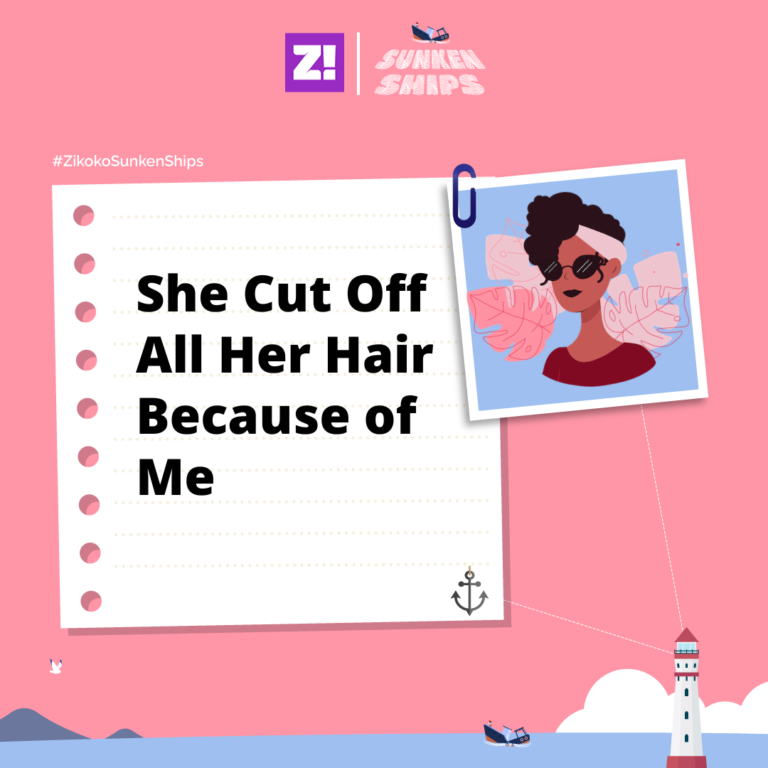The subject of this week’s What She Said is a 56-year-old woman whose parents sent her to live with her half-sister at the age of seven. She talks about going to Benin city, moving schools, and suffering from abuse at the hands of her half-sister and her family.
What is your earliest memory of your childhood?
I do not remember much of my childhood, but I remember being seven.
Why just being seven?
Seven was when my parents told me I was going to live with my half-sister in Benin City. I come from a polygamous home in Edo State, my father married three wives. I had a lot of siblings and half-siblings. One day, one of my half-sisters who was probably in her early thirties came to complain to my father about not having help around the house. She needed help to nurse her child after her maid left. My mother was ill and had travelled for treatment when this happened.
Would your mother being around have changed anything?
No. My mother was uneducated. She would not have said anything because of the fear of being accused of discriminating against her half-daughter. Plus, my father was very autocratic. He told my mother that he wanted my half-sister to train me in school because he had trained her. No one asked about my opinion. My father just called me and told me that my sister would be taking me to the city. I was excited. I was still a child, and I wanted to explore the city.
What was it like at your half-sister’s?
Well, I learned to speak English. Before then, I spoke only Esan. A year after I came to the city, I started school. I never stayed with her child alone because I was too young to watch over her.
My half sister’s sister-in-law was living with my half-sister as well, and they both seemed to be around the same age. I am not really sure because they were a lot older than me, and it was not common for children to know the ages of their older siblings.
Her sister-in-law was very wicked and insensitive. She would beat me up, my half-sister would beat me up, and her husband would also beat me up.
That is absolutely terrible.
It was, and being beat up was on the lighter side of the things that happened to me. I was battered, ill-treated, starved and even molested.
My aunt had a kiosk where she sold things like cigarettes. One day, I broke a stick of cigarette by accident. I was told that it would be my food for three days. The first day I had drank only water, then a neighbour advised me to run to my aunt’s place.
My aunt came back with me and warned my sister never to starve me, but that did not stop her. With the amount of times they starved me or just didn’t feed me enough, I developed a stomach ulcer that I still have to deal with now.
I also used to take sweets and cigarettes to the cinema near the house to sell till late in the night. If I didn’t sell most of the things, or a sweet got missing, I would be seriously beaten.
What about school, did you like school?
I did. Back in 1973, schools in Benin had two sections. There was a morning and an afternoon session. My half-sister was a teacher, so I was automatically in the afternoon session when she was teaching during the morning session. This was the arrangement so I could take care of her baby while she worked.
Each day, I missed a period or more because she always took excuses from the teachers to let me leave class. For the morning sessions, all she had to do was tell my teacher she wanted me to leave class. For the afternoon sessions, I would be late because I had to wait for her to get home before I left.
When I completed primary school, my sister wanted me to learn sewing, but my brother wanted me to go to boarding school. They eventually decided I would go to a day school because my sister still needed someone to take care of her children. It was my brother that paid the tuition.
Did the missing periods not affect your education?
It did, but what affected it more was having to change schools all the time. Whenever she was transferred, I automatically changed school. It was hard having to cope with the new environment. I went to four primary schools and three colleges to complete my secondary school.
I was in all-girls schools in class two going to class three when my sister needed to go do a course in a foreign country. I had to leave that school so I could be closer to the house and be able to monitor the children. By that time I was in class 2, my half-sister’s children had become five.
That must have sucked. How did you leave?
Well, when I was 16 I had issues with my eye. I had to travel to Lagos to get it checked.
I used to get beaten up when I slept off in the shop because of how tired I was. One day, I was beaten up in my sleep and my eyes bled because the cane went across my eyes. By the following day, there was a blood clot in my eyes.
A few years later, I started using glasses then eventually my eyes continued having various issues and was one of the reasons my half-sister decided I needed to get my eyes checked.
I stayed with my brother and his wife in Lagos, and didn’t go back to Benin city after. I finished secondary school in Lagos.
I moved in with my brother and his wife — the one that paid my tuition for me to go to secondary school — and his wife. Living with them was so much better. My brother was very supportive because of what I went through in Benin.
My brother’s wife was also a teacher, but she was a lot kinder. She showed so much understanding and helped me a lot.
What was your favourite part about staying with your brother?
I loved how human they made me feel. I got to sit with everyone and eat at the dining table instead of the kitchen. I could also stay in the living room to watch television.
In my half-sister’s place, my clothes were kept in a carton in a corridor where rain could damage my clothes. Clothes that were given to me by my other cousins . I stayed in the backyard and slept in the living room, so until they left the living room, I could not lay my mat down to sleep.
My brother’s wife encouraged me to forget about the bitterness. She took me everywhere she went and made me believe I could make something out of my life. She treated me like her own sister and made me feel wanted. She even updated my wardrobe, and gave me some of her clothes. Since she was a teacher, she helped with my school work. She is a wonderful person.
Did your brother have any children?
Yes, he does. When I got to Lagos, he and his wife had just a child, but later they had two other children, and I helped raise them all. Two of them are my god children.
How did your half-sister feel about you not returning to Benin?
She was not happy. She wanted me back, but her uncle who knew how I was ill-treated advised my brother not to let me go back.
When my dad visited Lagos, my uncle and my other half brother told our father that they didn’t want me to go back. My father was taken aback and disappointed.
What about your mother?
She died the January I moved to Lagos. Her death was actually one of the reasons that led to my coming to Lagos. Her death dealt a great blow to me. I used to wake up in the middle of the night and cry. Then, it got to the point where my eyes would just water on their own. My mother’s death was a turning point in my life.
I’m sorry she did. How did you cope with that?
I couldn’t have done it all alone. Lagos away from my half-sister helped me heal, plus my brother’s wife was there, a constant pillar of support.
My mother’s death led me to live with my brother and his wife, and if I didn’t do that my life would probably have turned out differently.
I still have a stomach ulcer and destroyed eye lens that came with living with my half-sister, but I think I’m happy with my life now.
For more stories like this, check out our #WhatSheSaid and for more women like content, click here




